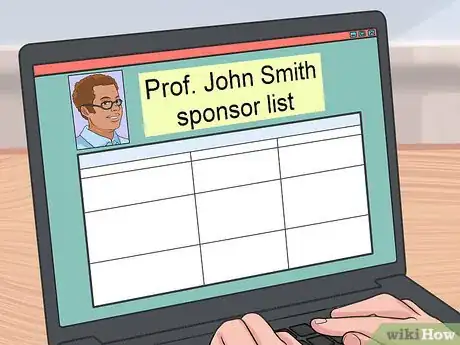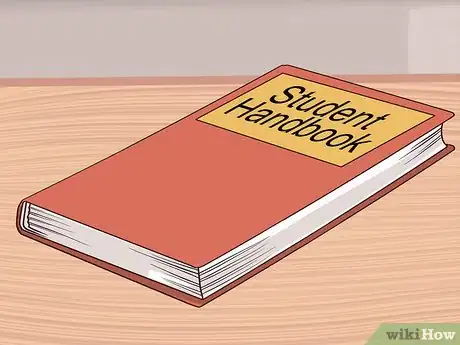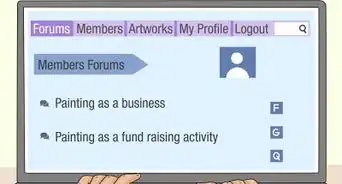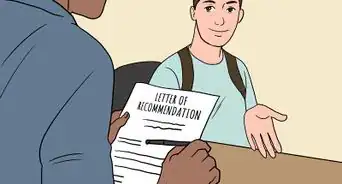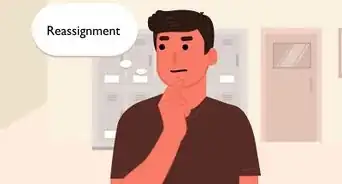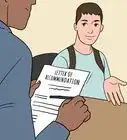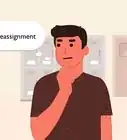This article was co-authored by Alicia Oglesby. Alicia Oglesby is a Professional School Counselor and the Director of School and College Counseling at Bishop McNamara High School outside of Washington DC. With over ten years of experience in counseling, Alicia specializes in academic advising, social-emotional skills, and career counseling. Alicia holds a BS in Psychology from Howard University and a Master’s in Clinical Counseling and Applied Psychology from Chestnut Hill College. She also studied Race and Mental Health at Virginia Tech. Alicia holds Professional School Counseling Certifications in both Washington DC and Pennsylvania. She has created a college counseling program in its entirety and developed five programs focused on application workshops, parent information workshops, essay writing collaborative, peer-reviewed application activities, and financial aid literacy events.
This article has been viewed 22,397 times.
Getting a teacher to sponsor your club might seem a little intimidating at first, but it's really not that bad if you prepare ahead of time. Keep reading for tips on how to ask—including how to choose the best teacher for your club!
Steps
Choosing a Teacher as Sponsor
-
1Determine the sponsor's role. If you're in college, the teacher may simply need to be on-board as a silent representative of the school and be available to sign equipment and room requests. If you're in high school, the teacher will probably be required to supervise activities for safety purposes. Have answers prepared for the following questions:
- Will the teacher be actively involved and how often will his or her presence be required? You could respond, "The teacher will need to be present for all meetings and that the teacher must sign off on any club activity that takes place away from school."
- Will he or she need to supervise equipment and activities? "The teacher will need to be present for all club activities."
- Are there any safety risks in the club itself? You could respond, "No, it's a chess club."
- How will the student body be made aware of the club? You might respond, "Social media or flyers."
-
2Look at teacher's interests. You should keep in mind that many teachers have interests outside their academic discipline and may welcome the opportunity to step outside their traditional box. Above all, however, you should look for a teacher with whom you have a solid student-teacher relationship with. A good personal relationship is helpful, but not strictly necessary. Have two or three back ups.Advertisement
-
3Consider the teacher's prior commitments before asking. This may be as simple as going on the school's website to see what extracurricular activities the teacher already sponsors. If you're in college, it might mean googling your professor to see what they themselves are involved in outside of research and teaching. In any case, knowing what your potential sponsors have on their plates is a good way of saving you--and them--time if you realize they already have way too much on their plate to sponsor another club.[1]
Asking Politely
-
1Set up an appointment with your potential sponsor. While teachers sometimes keep office hours, if you know your meeting might take awhile, it might be in your best interest to set up an appointment. If you know you have a free period, or a period where you don't have to participate the entire time, then you can ask for permission to meet with a teacher during that time. If you have that teacher for a class, you might just ask them while you're in class. Just don't disrupt class to do so.[2]
-
2Meet with the your potential sponsor. You'll want to present the club as completely as possible. You do not need to write down a presentation as this should be an informal meeting, but you should bring all the paperwork with you. You'll want to be on time and completely prepared with the answers that your sponsor might have. Though they may ask a question you weren't expecting, you should try to cover all the bases before the meeting. Your teacher may ask the following questions:[3] [4]
- "Do you have the necessary paperwork?" You should be able to say "yes" to this.
- "What's my role?" You could respond, "To supervise all activities of the club."
- "What are the planned meeting times?" You could respond, "During the normal club period," or "On Tuesdays after school."
- "Are you planning to have any off-campus matches or events?" You could respond, "Yes, we'd like to go to the School Chess Association Tournament."
-
3Accept a yes or no with equal grace. Though you may be disappointed, getting upset or angry is not going to help you along with the club. Remember that teachers talk to each other and if you react poorly to a rejection from one teacher, other teachers may not want to sponsor you either. Instead, calmly thank them for their consideration and move on to your next choice for a sponsor. If they say yes, thank them as well, and follow up with some reassurance that you'll do your part as well. You'll also want to get them to sign any necessary paperwork.
- Ask the teacher, "We've been working on putting together a chess club. Would you be willing to sponsor it?"
- If the teacher says yes, say, "Thank you. What do you need to know about the club? And can you sign these forms?"
- If the teacher says no, say, "Thank you for hearing us out," and then ask them if they know of anyone who would be willing to sponsor the club.
- Don't forget to follow-up with the teacher and the administration once you've submitted your form. If they give you a time-frame for an answer, don't hassle them before that time has passed.
Formulating Ideas for the Club
-
1Determine what you want from the club. Will you do projects? Will it be a space for sharing experiences? Will you participate in a competition, such as a quiz bowl? What are the logistics of any and all of these, including additional paperwork beyond the school's paperwork, deadlines, and potential meeting times.[5]
-
2Check student interest. If other students aren't interested you may have a hard time getting support for starting a club. You'll want at least 2 or three other students to support you as you try to start a club. You might try feeling out interest through your social media accounts, or by checking with your friends at school.[6]
-
3Check your student handbook. Before you get too far in the process, you'll want to know your school's requirements for the formation of clubs. Do they have a formal process for assigning sponsors? Do they allow some clubs to have a class period to meet or do all clubs have to meet during a delineated time or after school?[7]
- If the student handbook isn't very detailed, it may be a good idea to ask a counselor or administrator about setting up a club. They will likely have the information you need, and can give you guidance about which teachers may be up to sponsoring your specific club.[8]
- You'll want to find out what paperwork you need and fill it out as much as you can before speaking to the teacher. The less work the teacher has to do, the easier it will be for them to say yes.
-
4Ask other students who have formed clubs. As with many things in school, older students often know a bit about policy and getting things done at a particular school. If you are a part of a new club or you know some students who have formed a club, ask them for the details of the process. Ask them, "What would you have done differently if you had to start over on the club?" or "What were the obstacles you had in starting your club?"[9]
Warnings
- Some clubs will not be approved without parental approval, and some not at all. A firearms club, for example, would have difficulty getting any faculty support. A safe-sex awareness club might be approved but would require notes of permission from parents long before it was presented to any teacher. Decide what group your club falls into and prepare accordingly.⧼thumbs_response⧽
- Some clubs that are considered risky are insurance issues for schools. Be prepared to explain how you will deal with this problem when you present the club to a teacher or you will be shot down immediately. Nearly every physical activity, from cycling to dance, falls into this category.⧼thumbs_response⧽
References
- ↑ https://www.noodle.com/articles/how-to-talk-to-a-professor-explained-by-a-professor
- ↑ https://www.noodle.com/articles/how-to-talk-to-a-professor-explained-by-a-professor
- ↑ http://wp.stolaf.edu/english/how-to-ask-a-professor-for-a-letter-of-recommendation/
- ↑ https://www.transizion.com/how-to-start-a-club-in-high-school-guide/
- ↑ https://www.aclu.org/how-start-gay-straight-alliance-gsa
- ↑ https://www.ivywise.com/blog/how-to-start-your-own-student-club/
- ↑ https://www.aclu.org/how-start-gay-straight-alliance-gsa
- ↑ https://www.aclu.org/how-start-gay-straight-alliance-gsa
- ↑ http://www.nytimes.com/2015/08/02/education/edlife/advice-for-new-students-from-those-who-know-old-students.html


